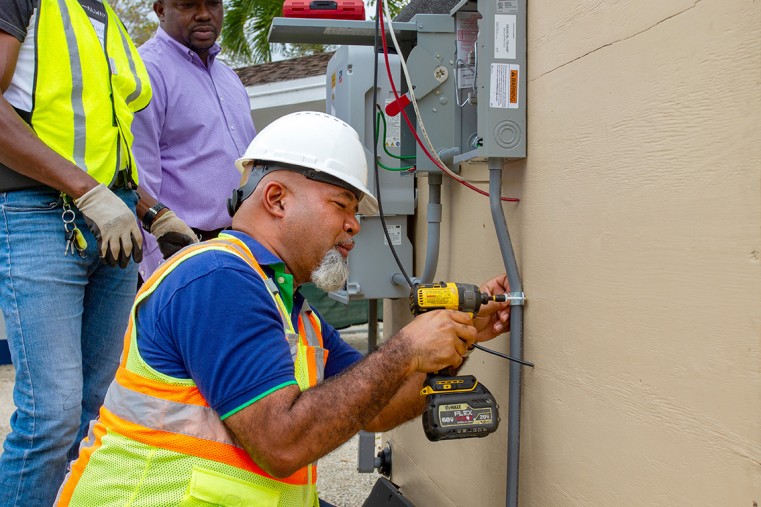Cleveland Julian
- Job Market
- Upload Ad Requests
- Rates
- Home
- Video
- About Us
- Contact Us
- Business Showcase
- Archives
- Blogs
- Upload Advertisements
- Video News Release
- Front Pages
- Community Notices
- Law Enforcement
- Government
- Community Voice
- Health Care
- International
- Sports
- Politics
- Community
- Entertainment
- Advertorial 2
- Non-Profit Organisation(NPO)
- Adopt a Pet
- Tourism
- CIIPO
- Taste of Class
- Opinions & Editorial
- Environment
- Outstanding Employee
- Outstanding Performance
- Celebration
- Gardening
- Beneficial Ownership
- Tips and tricks
- Cover Stories
- Cost of Living
- Development
- Employment
- Education
- Arts and Culture
- Business
- Global News Briefs
- Hurricane Watch
- Breaking News
- Regional
- Public Notices
- Local News
- Lifestyle
- Finance
- Economic
- Election Center
- COVID - 19
- UK Territories
- Advertorial
- History
- Inspiration
- The Panel
- The Interview
- Cayman Conversation
- Community Notices
- Law Enforcement
- Government
- Health Care
- Sports
- Election Center
- Cayman Conversation
- More
- Front Pages
- Community Notices
- Law Enforcement
- Government
- Community Voice
- Health Care
- International
- Sports
- Politics
- Community
- Entertainment
- Advertorial 2
- Non-Profit Organisation(NPO)
- Adopt a Pet
- Tourism
- CIIPO
- Taste of Class
- Opinions & Editorial
- Environment
- Outstanding Employee
- Outstanding Performance
- Celebration
- Gardening
- Beneficial Ownership
- Tips and tricks
- Cover Stories
- Cost of Living
- Development
- Employment
- Education
- Arts and Culture
- Business
- Global News Briefs
- Hurricane Watch
- Breaking News
- Regional
- Public Notices
- Local News
- Lifestyle
- Finance
- Economic
- Election Center
- COVID - 19
- UK Territories
- Advertorial
- History
- Inspiration
- The Panel
- The Interview
- Cayman Conversation
Subscribe
New UCCI grant to benefit wider community
Cleveland Julian



Cayman Conversations
In this second Cayman Conversations with the UCCI, Caymanian Times publisher Ralph Lewis spoke with Cleveland Julien, UCCI’s project manager for science technology/Project Officer, Profession & Technical Education & Training, about a new grant that has been given to the University which will have far-reaching benefits not just for students, but for the Cayman community and even the Caribbean as a whole.
The grant, which was received by the UCCI in early April, is their second RESEMBID (Resilience, Sustainable Energy and Marine Biodiversity) grant and is given by the EU to entities that focus on human capital development initiatives in these areas. The first grant, which was well received, focused primarily on training, enabling 50 students to enroll across four sectors and those students are currently in internships or preparing for their exams.
“We are looking for a very successful outcome. We want to get as many of those 50 certificates as possible in place by July/August of this year,” Cleveland said.
The second grant, originated by the UCCI’s Dr Deborah Beale and supported by the President Dr Robert Robinson, picks up from where the last grant left off, Cleveland explained.
“The first grant asked a couple of questions: what training is needed in the next 10 to 15 years as we look towards a sustainable framework for ourselves from a human capital perspective; and how do we need to upgrade our UCCI curriculum to begin to deliver that training,” he advised.
The questions were being answered using a labour market assessment currently being completed and to be published by the end of the month/early June. The second grant expands that conversation beyond just the UCCI community and the Cayman community and asks what would it take for the UCCI to become a beacon model for a sustainability framework across the Caribbean, he said.
“This grant has a lot of outcomes; it’s a very ambitious project,” Cleveland stated.
Deliverables for the second grant include looking at what a sustainable plan looks like for the university and a comprehensive audit of all the buildings on the campus.
While the campus has served the university well over the years, Cleveland acknowledged, “From an energy efficiency perspective we have some challenges.”
The second deliverable will see the UCCI undergo an ASHRAE (The American Society of Heating, Refrigeration and Air-Conditioning Engineers) audit, with experts coming onto campus assessing all the buildings in terms of energy and water usage and air quality and producing a report to give guidance as to how to make the campus more efficient. The third deliverable will be to implement their top suggestions. Then the UCCI plans to take that data and create a living lab so they can see in real time how the campus is utilising energy, what is its position in terms of water and air quality and usage, and then share that info across the Caribbean through various partnerships.
“We are trying to make this a landmark project,” Cleveland said.
All that knowledge will then be used to create online courses in energy audit so that Caymanians can begin to do their part in helping to reduce the carbon footprint as an island.
One step in the UCCI’s bid towards building a sustainable energy infrastructure is to install a 150-kw solar array on the auditorium, which Cleveland is overseeing. The university is working closely with the Ministry for Sustainability in such projects and to develop courses and public awareness around sustainability.
Cleveland advised that RESEMBID is very specific in the outcome of their projects.
“When they invest their funds, they want to ensure that there is a legacy that is created by everything that is done,” he explained.
It is anticipated that the UCCI will get a rebate every year from CUC from the solar generation which can fund courses and on-going training. The living lab will serve the needs of the faculty and, it is expected that, as an institution, it will grow in recognition and demonstrate leadership in this sustainability space.
“There’s certainly a lot to gain here from a UCCI standpoint,” Cleveland said.
He went on to advise that the Cayman Islands community would have the benefit of this data and the outputs thereof, so it was really far-reaching.
“The thing that really distinguishes it from the first grant is this Caribbean interest,” he advised.
The UCCI was looking to partner with the University of the West Indies, the Caribbean community for climate change and the Caribbean Centre for Energy Efficiency, all of which were critical partners, he stated.
“At the end of this we really hope that we not only create stronger bonds with our Caribbean partners, but we begin this conversation about what does it mean to be a technological and innovative leader in the space of sustainability as an institution,” he said.
This project is part of the R3 grant to UCCI, with Greentech (James Whittaker) and Island Offsets (Cathy Childs) as co-grantees. The UCCI RESEMBID grant will expand on the work of the R3 grant by adding solar panels to another building unit and creating additional opportunities for students to learn from and monitor solar energy utilisation.
Online Poll
Independent or Party: Independents top the Category with 23 Candidates. Select your preference
Popular News
DIRE CONSEQUENCES OF OVER- DEVELOPMENT
14 Apr, 2025
Mexico beat Cayman 20-10 in ‘Big Match X’ Rugby
05 Jun, 2024













Comments (0)
We appreciate your feedback. You can comment here with your pseudonym or real name. You can leave a comment with or without entering an email address. All comments will be reviewed before they are published.